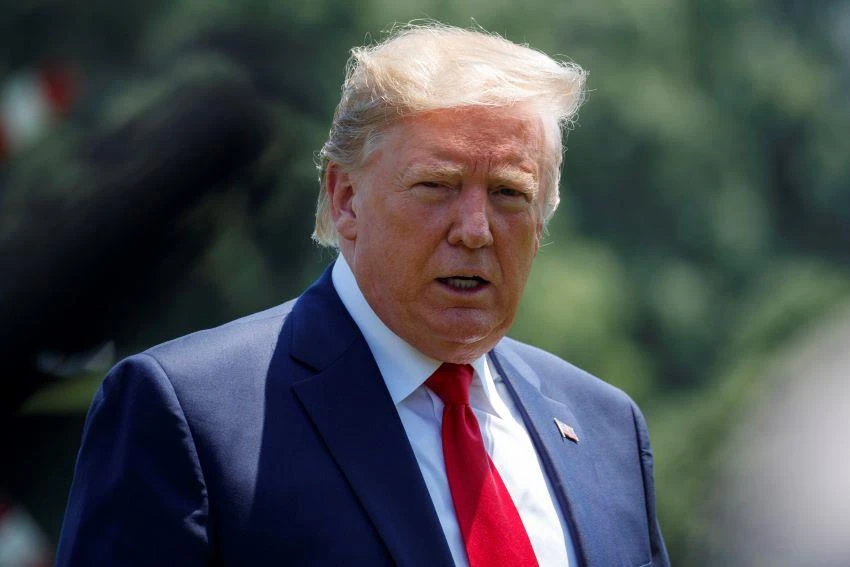
"Trade talks are continuing, and during the talks the U.S. will start, on September 1st, putting a small additional tariff of 10% on the remaining 300 billion dollars of goods and products coming from China into our Country," Trump said in a Twitter thread, adding that the U.S. looks forward to "continuing our positive dialogue with China on a comprehensive Trade Deal."
Speaking to reporters later that afternoon, Trump also signaled these tariffs could "ultimately be lifted in stages" and rise above 25%.
Trump's comments came after trade talks between U.S. and China in Shanghai this week ended without notable progress. They marked first in-person negotiations since the two sides decided to resume talks in June.
The next round of negotiations is scheduled to take place in the U.S. in September.
In announcing the tariffs, Trump again railed against what he sees as China's backpedaling, which caused talks to collapse in May.
"China agreed to buy agricultural product from the U.S. in large quantities, but did not do so," Trump added. "Additionally, my friend President Xi [Jinping] said that he would stop the sale of Fentanyl to the United States -- this never happened." Fentanyl, a powerful synthetic opioid, has been blamed for contributing to the epidemic of drug abuse and overdose deaths in the U.S.
Products covered by the new tariffs will include consumer goods such as shoes, apparel and electronic gadgets. In a series of hearings in June, large American companies from Ralph Lauren to Best Buy warned of inevitable price hikes if tariffs were imposed on a wide range of imports.
The announcement of tariffs drew immediate backlash from corporate America. The Footwear Distributors and Retailers of America, whose members include Nike and Walmart, issued a statement an hour after the president's tweets, saying the association "will not take this news lying down."
"President Trump is, in effect, using American families as a hostage in his trade war negotiations," the statement said.
Investors reacted to the news with a stock sell-off, sending the Dow Jones Industrial Average down 280 points to close at 26,864.
David Dollar, senior fellow at the John L. Thornton China Center at Brookings Institution, said it is surprising that "Trump moved so quickly, though at 10% it’s a moderate move, not a full escalation."
"Apparently Trump is frustrated that he can’t get China to move, but he risks throwing more sand in the wheels of the U.S. economy," Dollar said.
Think tank Eurasia Group said in a report that the president's tweets "signal a return to his pre-G20 approach to negotiations with China, attempting to build additional leverage over Beijing even as talks continue."
Calling it a "serious gamble" for Trump, Eurasia Group said it shows that the president is looking for a deal before the 2020 election.
"But his move is also a serious misreading of China’s pressure points and response," the group said.
Washington's last tariff action against China took place in May when it raised levies on $200 billion worth of goods from the country to 25%.Hours before the Trump tweet, China's Ministry of Commerce had expressed hope that negotiations would move forward.
"Chinese and U.S. negotiating teams will maintain close communication and intensify trade consultations," Gao Feng, a spokesperson for the Ministry of Commerce had said at Thursday's news conference.
China's state-run Xinhua News Agency on Wednesday sounded an optimistic note on the direction of trade negotiations, describing the latest round of talks as "frank, efficient and constructive."
The meetings in Shanghai saw the two sides discussing how China could purchase American agricultural products "according to its needs" and how the U.S. can "create favorable conditions for the purchases," Xinhua said.
In a separate commentary published Wednesday, Xinhua said talks between Washington and Beijing are "again on the right track."
"U.S.-China trade ties have gone through obstacles, but the momentum of progress has never changed," the article said. But it also cautioned that "the road of future negotiations will be one of twists and turns," citing "continual noise from the American side" about putting pressure on China.




















